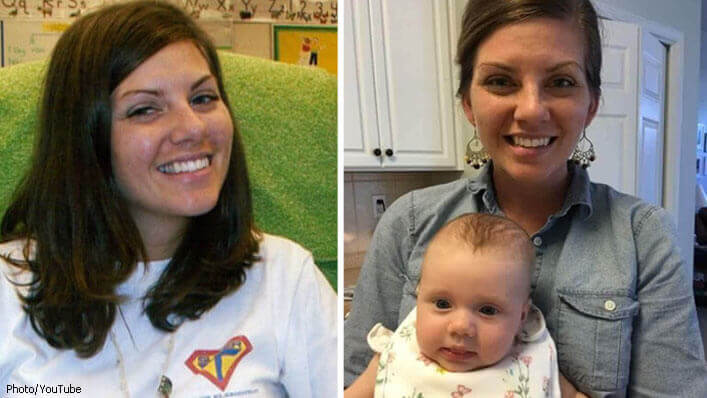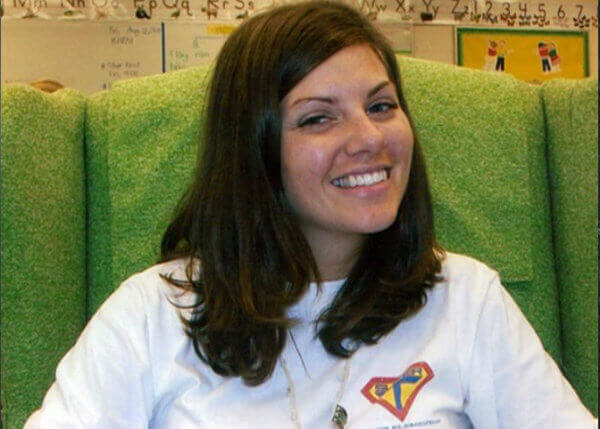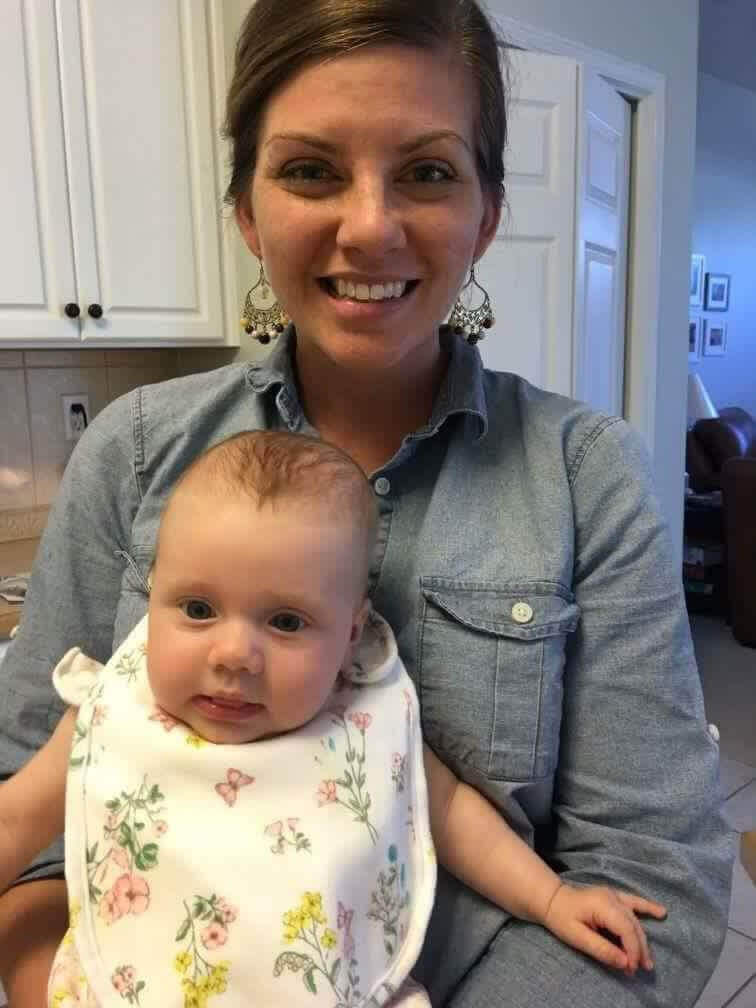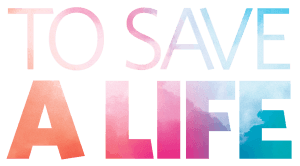
For those who knew Allison Goldstein, there was no doubt that she had a wonderful life. She had just given birth to her first daughter, Ainslee, and she had a beautiful marriage that was thriving despite the constant life changes that come with having a spouse in the military.
“She was incredibly witty and had an amazing ability to make everyone around her feel welcome, included, and loved,” her best friend Julie Waterfield writes. “I knew we would be lifelong friends.”
Julie says Allison was more than a friend, but also a role model, a confidant and a “beautiful ray of sunshine.” Their friendship meant the world to her.
I wanted to be just like her. She was adorable, healthy, smart, funny, loyal, supportive, and oh so sweet. Every time she greeted me with my giant belly, she said, “You look beautiful!” Of course I didn’t think so when I looked in the mirror, but she made me feel so good. Allison was a great friend. She handled pregnancy and motherhood beautifully…on the outside.”

But Allison was suffering in silence — being destroyed from the inside-out by the lies and misery of postpartum depression. It’s the silent killer that led Allison to write a several-page-long goodbye email before checking her four-month-old daughter into day care, and driving herself to an abandoned dirt road where she took her own life.
“My beautiful would-be life-long friend lost her hidden battle with Postpartum depression on June 28th, 2016. She left behind a loving husband, a precious 4.5 month-old baby girl, and countless family and friends who adored her.”
In her email, Allison apologized to her loved ones saying, “I’m so sorry that I didn’t know how to describe this pain and seek help.”

There were no red flags, no warning signs, no concerning behaviors or “depressed” moods. There was no knowing what Allison was enduring. Which is exactly why it’s important that we share her story.
Julie wants others to hear Allison’s story to know that they are not alone, and they don’t have to suffer. Motherhood looks different for everyone. But knowing how to navigate tough conversations could spare the life of a beautiful mother who is secretly being destroyed by her own thoughts and mind.
“Not every new mother’s journey is happy and bright. Sometimes it is dark, lonely, scary, miserable, and uncertain. And the guilt! The guilt that we self-impose and that society imposes on us is overwhelming. If our journey as a mother isn’t daisies and butterflies, we feel alienated and ashamed. There is a rainbow at the end of the PPD storm that is raging for these struggling mamas. Help is out there in many forms if we just seek it: loving friends, supportive husbands, counselors, support groups, and medication.”
Allison’s father says, “If this can happen to Allison, it can happen to anybody.”
Statistics show that suicide is the leading cause of death in women the first year after having a baby. The statistic is staggering, but we have the power to change it.
It can be as simple as asking a new mom, “Are you okay?” or “How are you doing with all of these changes?”
But don’t stop there.
Like any mental illness, there tends to be a completely unnecessary stigma associated with postpartum depression. One of the best things you can do is talk about PPD and de-stigmatize any shame that might surround the diagnosis.
There are far too many amazing things ahead for mamas who find themselves stuck in the death-grip of PPD. Julie wants Allison’s story to be shared with everyone, in hopes that it may encourage another new mama to seek help.
If you are a new mom or know a new mom who might be feeling even a tad bit blue, please reach out! Postpartum Progress is an excellent place to start.
To the mamas facing the battle of PPD: You are NOT alone, and this world is a BETTER place with you in it.
